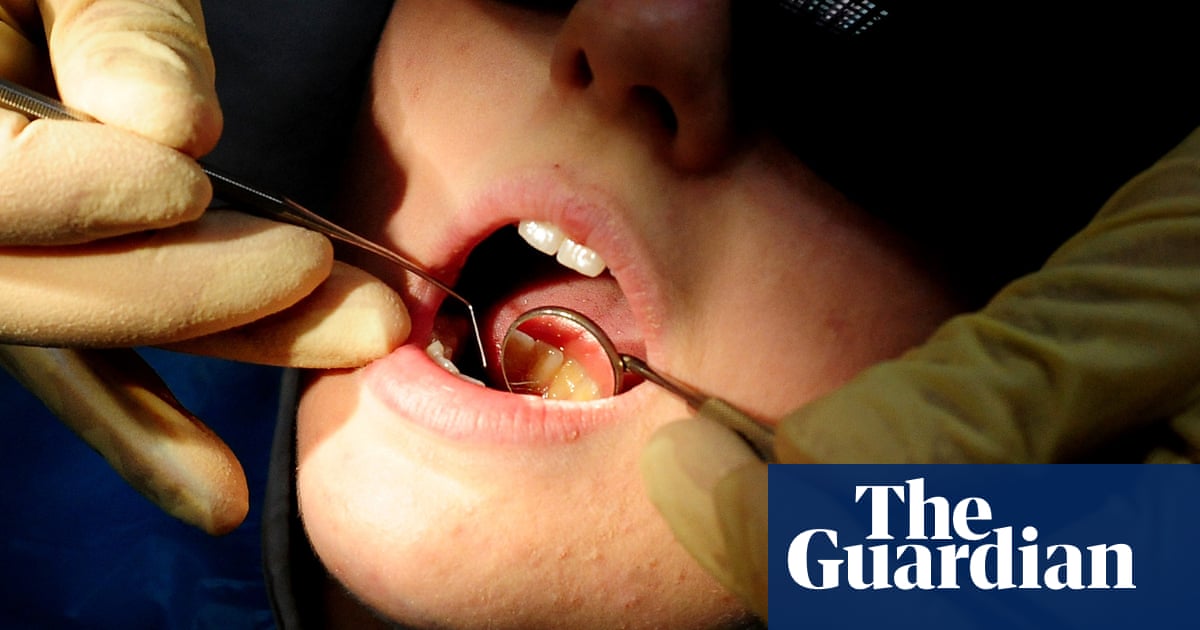
There are concerns about the future availability of silver dental fillings in Northern Ireland because the EU is planning to phase out amalgam.
According to dentist representatives, the decision to eliminate amalgam by January 1st of the following year will impact dental care in the UK beyond Northern Ireland, as a result of Brexit trade agreements.
The reason for this is that the ban prohibits exports of the product from the EU. As a result, many are concerned that the supply of amalgam from Germany, a major source, will be cut off.
The BDA has stated that Northern Ireland will face a significant impact, not only due to Brexit but also due to the current state of the health system in the region. This system is the weakest in the UK, with the longest wait times and the highest usage of amalgam as a dental restoration treatment. The BDA advocates for the use of amalgam as it is a cost-effective and effective option for dental restoration.
The British Dental Association (BDA) has written a letter to the four chief dental officers in the UK, expressing their concerns about a recent EU development that has major implications for Northern Ireland. They do not believe that it is possible to phase out this development by January 1st, 2025 because there are currently insufficient measures in place for oral health prevention and mitigation. They are urging for immediate action to be taken.
Under the Windsor framework, and the Northern Ireland protocol before it covering the special Brexit arrangements for Northern Ireland, some previous EU rules must be observed, including those on the dental amalgam.
The BDA expressed great concern over the consequences of the EU phase-out on services in the UK. This includes both direct effects under post-Brexit agreements and indirect effects due to potential supply chain disruptions in Europe.
According to a representative, statistics from Northern Ireland reveal that amalgam was utilized in 46% of fillings, the highest rate in the UK. This reflects the lower health outcomes in the region. In comparison, England only used amalgam in approximately 33% of fillings.
In 2018, the UK and EU implemented regulations limiting the use of mercury-containing fillings in accordance with the Minamata Convention on Mercury. This treaty aims to decrease worldwide environmental contamination caused by mercury, including its release during the creation of dental amalgam.
As stated in literature from the NHS Education for Scotland, there is no proof of negative effects from amalgam. However, under the 2018 regulations, amalgam fillings were not allowed for children under 15 and pregnant or breastfeeding women unless the dentist deemed it necessary.
According to the BDA, amalgam is approximately half the cost of white filling material and has a longer lifespan. This has raised concerns about potential increases in the cost of NHS dental services, which the BDA claims are already in a vulnerable state.
In a letter addressed to UK dental officials, it was stated that the substitution of a crucial restorative material with pricier and more time-consuming alternatives is another hit to the financial sustainability of NHS dentistry. This is especially concerning for high-needs patients who still benefit the most from amalgam as a treatment option.
Members of the European Parliament have approved an alteration to minimize the socioeconomic consequences of the decision.
The government of Scotland has made changes to its current Statement of Dental Remuneration laws in order to address the added expenses resulting from the gradual elimination of amalgam. However, due to the ongoing suspension of the power-sharing government in Stormont, similar legislation cannot be advanced in Northern Ireland.
A spokesperson from the Northern Ireland Office stated that discussions regarding the final version of the rule, which has been approved by the European parliament, are ongoing and involve negotiations between the EU parliament and the council.
“The UK’s stance is to gradually reduce the usage of dental amalgam, but our main concern is ensuring that individuals are able to access necessary dental treatment in a timely manner.”
If the EU’s proposal is ultimately accepted, it could be halted in Northern Ireland through the “Stormont brake” mechanism outlined in the Windsor framework. However, this would only be possible if Stormont is operational.
Source: theguardian.com


















